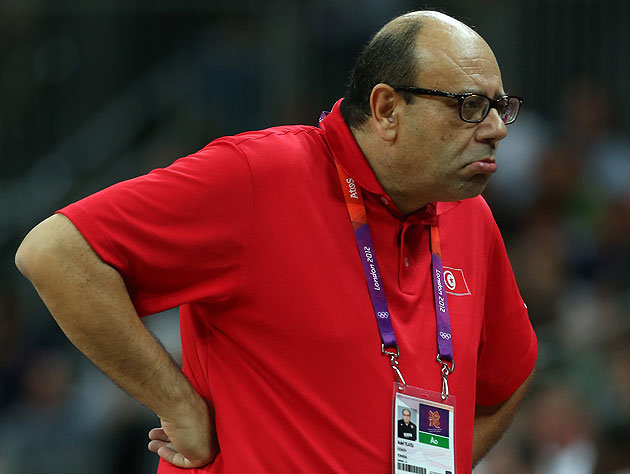 It’s difficult to question things we don’t realize we assume. For example, few of us ponder why we easily trust our family doctor to diagnose pretty much ANY part of our body, internal or external, except our mouth. Our mouth, it seems, is so darned complicated and unique compared to, say, our aortic valve or epidermal sheath, that only SPECIAL DIFFERENT OTHER TYPES OF DOCTORS can even LOOK at this oral outlier.
It’s difficult to question things we don’t realize we assume. For example, few of us ponder why we easily trust our family doctor to diagnose pretty much ANY part of our body, internal or external, except our mouth. Our mouth, it seems, is so darned complicated and unique compared to, say, our aortic valve or epidermal sheath, that only SPECIAL DIFFERENT OTHER TYPES OF DOCTORS can even LOOK at this oral outlier.
The sole exception involves gagging you with a stick while you say ‘aaahhhh’ – a breach of etiquette required to view your throat (which doesn’t even count).
We don’t really think to question it. That’s just how it is, was, and always shall be. Except it’s not. It hasn’t been THAT long since your local barber would be as likely to pull your troublesome tooth as trim your sideburns. It was all above-the-shoulders care – why limit yourself?
 School is rife with these sorts of assumptions. We simply MUST shuffle students from boxed area to boxed area in slightly-under-an-hour increments. We have roughly the same number of kids in each class, one subject per teacher, and at some point papers of various kinds must be placed in baskets to “grade.” Eventually, all experiences must reduce to a number between 1 – 100 and one of five letters, none of which can be ‘E’ because that’s stupid and wouldn’t tell us anything – unlike, say, ‘C’.
School is rife with these sorts of assumptions. We simply MUST shuffle students from boxed area to boxed area in slightly-under-an-hour increments. We have roughly the same number of kids in each class, one subject per teacher, and at some point papers of various kinds must be placed in baskets to “grade.” Eventually, all experiences must reduce to a number between 1 – 100 and one of five letters, none of which can be ‘E’ because that’s stupid and wouldn’t tell us anything – unlike, say, ‘C’.
It’s really rather bizarre.
But these things are at least being discussed, and challenged. The sense that we’re missing something isn’t new, but the subject does seem to be heating up lately, thanks to a variety of issues – Common Core, Race to the Top, No Child Left Behind, anything involving Bill Gates, Jeb Bush, Arne Duncan, or Michelle Rhee. If those don’t get your panties in a wad, I could add TFA, charters, vouchers, or Virtual Embezzlement… those oughta do it.
The ease of utilizing blogs and social media probably hasn’t hurt. Teachers can rant and share and question with a comfortable combination of anonymity and familiarity – and with peeps from around the edu-niverse. I myself have a lil’ blog which is more or less education-focused. You should check it out sometime.
Something I don’t hear questioned much, though, is the nature of our ‘core curriculum’. Sure, the specifics vary from district to district, and grade to grade, but it’s generally assumed that all students need Math, English, Science, and – time permitting – some kind of History or Social Studies. Ideally they’ll get a little Art, something Computer-ish, maybe even whatever it is we call “Home Ec” these days. But the Big Three-and-a-Half remain constant across an otherwise fractured edu-nation.
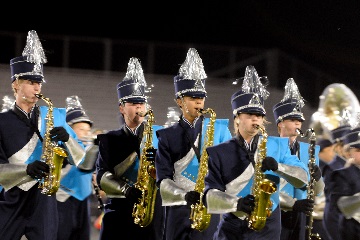 And if students behave, and keep the right letters on their weekly personal-reduction-to-a-point-value report, they may be allowed to play sports, or participate in drama, or band, or debate, or cheer, or dance, or some other ‘extra-curricular’.
And if students behave, and keep the right letters on their weekly personal-reduction-to-a-point-value report, they may be allowed to play sports, or participate in drama, or band, or debate, or cheer, or dance, or some other ‘extra-curricular’.
We call them that because they’re things going on OUTSIDE the curriculum – outside of the presumably important, useful, REAL purpose of school stuff.
That’s the thing I’m surprised we don’t question more often. What makes these things ‘outside’, compared to, say… Physics? Algebra? State History? What makes some classes ‘curricular’ and others, well… ‘extra’?
If you’re failing Algebra, you can’t play Basketball. But if you’re failing Basketball, they don’t stop you from going to Algebra until you get your game back on track. This little motivational system only works one way.
Why?
Algebra is important, but so are athletics. If our goal is “college, career, and citizenship ready,” Basketball is far more likely to help you with the latter two. Algebra wins for the first, but mostly that just means that doing math qualifies you to do harder math.
 Most of these kids are never going to be professional athletes. But neither are they likely to become professional mathematicians, or chemists, or historians, or novelists. The skills and knowledge gained in each of those realms nevertheless serve a larger good. They help to form a fuller, better, hopefully somewhat happier person.
Most of these kids are never going to be professional athletes. But neither are they likely to become professional mathematicians, or chemists, or historians, or novelists. The skills and knowledge gained in each of those realms nevertheless serve a larger good. They help to form a fuller, better, hopefully somewhat happier person.
The sorts of life skills learned and practiced in a strong band, drill team, or competitive speech program are just as applicable to career and personal success as anything covered in English class. If we’re hoping to produce team players not afraid to take risks, our girls’ volleyball team is way ahead of, say, AP Physics.
There are even, apparently, entire classes devoted to – get this – LEADERSHIP. Who knew?
The value of individual effort and responsibility combined with teamwork and group accountability – the drive to be the best one can be while maintaining appropriate sportsmanship – overcoming adversity – recognizing that struggle produces progress – the power of setting both short-term and long-term goals – adapting quickly and capably when things don’t go according to plan…
Are these things really so much less important than learning to factor binomials or identify regions in which the Afton point seems to have replaced the Clovis?
I’m not dismissing the importance of content knowledge in a variety of areas – I love my subject and if granted my boon would elevate it to the number one priority for all school children everywhere in the world. Heck, I even value learning for learning’s sake – it’s fun, and fulfilling, and just plain good for us. It also makes us less useless, and hopefully a tad less odious.
But I’m just not convinced our current caste system of subjects is nearly as obvious or necessary as we think.
 I sat in yet another #STEM breakfast recently and heard extolled the glories of project-based learning with clear assessments whose rubrics were known in advance and a process built on collaboration – what the rest of us might call ‘band rehearsal’, ‘theater’, ‘competitive debate’, or ‘football practice’.
I sat in yet another #STEM breakfast recently and heard extolled the glories of project-based learning with clear assessments whose rubrics were known in advance and a process built on collaboration – what the rest of us might call ‘band rehearsal’, ‘theater’, ‘competitive debate’, or ‘football practice’.
In this case they meant mostly science-y stuff, which is all wonderful and good. But we already have classes where students do those things. They’re just not allowed to keep doing them unless they pass Science.
Are we currently turning out a generation so fluent in algebra, world history, chemistry, and grammar that it would be tragic to risk any of it in exchange for a few life skills? Are we so certain that kid who finds his calling in Theater Production would have totally aced that Old Man and the Sea quiz if he hadn’t been wasting his time doing something that might lead to employment in a field he loves?
I’m not suggesting we do away with the cores. I AM suggesting we expand our idea of what constitutes a ‘core subject’ and do a better job exploring to what extent stuff kids actually want to know and be able to do can be utilized as more than a carrot or a stick to navigate them through the things we think they simply have to know whether they want to or not.
I am suggesting we’re vain to think we know exactly what will or will not be ‘good for them’ long term, especially when their gifts and inclinations suggest otherwise. I am suggesting that we cannot equip a generation to be flexible and adaptable and useful by cramming them all into the same Enlightenment-era curricular mold, enforced through a factory-model school system.
I’m suggesting we question our assumptions.
{NOTE: This is a reboot of a previous post. Like your mom.}
Related Post: First Class, or Coach?
Related Post (From “The Disappointed Idealist” Blog): Academic vs. Vocational – Why Does It Need To Be A Choice?

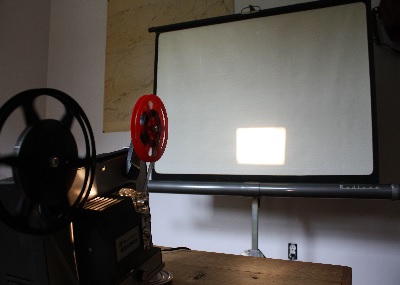 Teachers who also coach – or coaches who also teach ‘real’ subjects – get a bad rap. When you see a teacher on TV or in movies who’s being played for laughs, it’s almost always a coach (and a history teacher at that). I’ve several times been at the front of the room leading brief introductions at the beginning of a workshop when some well-intentioned dear lady will give her name, and where she’s from, and lament that besides herself and maybe the new teacher next door, her department is all coaches, so…
Teachers who also coach – or coaches who also teach ‘real’ subjects – get a bad rap. When you see a teacher on TV or in movies who’s being played for laughs, it’s almost always a coach (and a history teacher at that). I’ve several times been at the front of the room leading brief introductions at the beginning of a workshop when some well-intentioned dear lady will give her name, and where she’s from, and lament that besides herself and maybe the new teacher next door, her department is all coaches, so…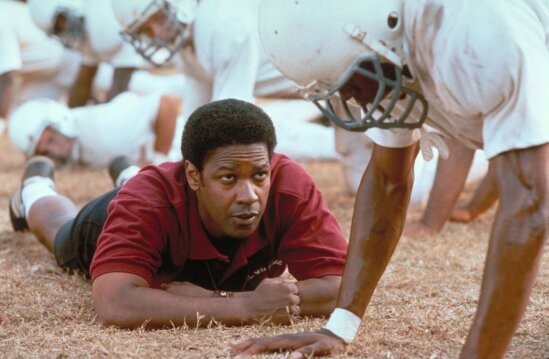 I don’t coach myself, nor am I qualified to do so, but I have seen Remember the Titans about 19 times. I thus consider myself supremely qualified to make some confident statements about coaches who teach, and teachers who coach (and come to think of it, I’m pretty sure these are the same thing). I’ll number them to lend artificial authority to each statement.
I don’t coach myself, nor am I qualified to do so, but I have seen Remember the Titans about 19 times. I thus consider myself supremely qualified to make some confident statements about coaches who teach, and teachers who coach (and come to think of it, I’m pretty sure these are the same thing). I’ll number them to lend artificial authority to each statement.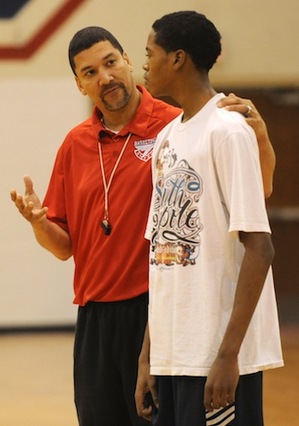 (3) Coaches are evaluated publicly and often by the performance of students who may or may not be demonstrating what they’ve actually been taught. Annoyed by those good ol’ boys who are obviously given classes during the day simply to fill the slot and justify their position? Frustrated at how impossible it is to push a coach with mediocre classroom skills aside to make room for a ‘real’ teacher? If your tenure and paycheck (the one used to buy your kids clothes and food and such) relied largely on how things go Friday night, I suspect you’d be easily distracted from that flipped-model inquiry-based cross-curricular collaborative journey you were trying to scaffold. You might even make a few calls to your staff and revisit some plays or other logistics. This is not a ‘coach’ problem – this is a structuring problem.
(3) Coaches are evaluated publicly and often by the performance of students who may or may not be demonstrating what they’ve actually been taught. Annoyed by those good ol’ boys who are obviously given classes during the day simply to fill the slot and justify their position? Frustrated at how impossible it is to push a coach with mediocre classroom skills aside to make room for a ‘real’ teacher? If your tenure and paycheck (the one used to buy your kids clothes and food and such) relied largely on how things go Friday night, I suspect you’d be easily distracted from that flipped-model inquiry-based cross-curricular collaborative journey you were trying to scaffold. You might even make a few calls to your staff and revisit some plays or other logistics. This is not a ‘coach’ problem – this is a structuring problem.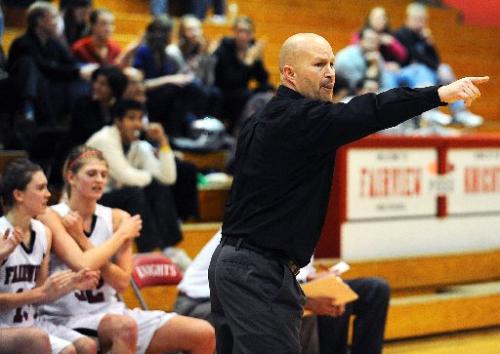 (6) Coaches will mess with you by playing to your preconceptions. I see it all the time in workshops – the self-deprecating humor, the inside jokes. Maybe this is merely a ploy to lower expectations (especially on those required in-district days), but I suspect it’s usually just amusing to watch the rest of us be all smug without admitting it to ourselves.
(6) Coaches will mess with you by playing to your preconceptions. I see it all the time in workshops – the self-deprecating humor, the inside jokes. Maybe this is merely a ploy to lower expectations (especially on those required in-district days), but I suspect it’s usually just amusing to watch the rest of us be all smug without admitting it to ourselves.